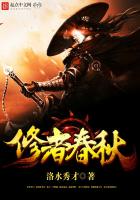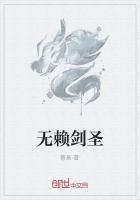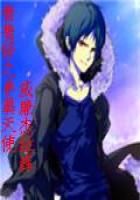An Unexpected Meeting
“Wake up, Digory, wake up, Fledge,” came the voice of Polly. “It has turned into a toffee.tree. And it’s the loveliest morning.”
The low early sunshine was streaming through the wood and the grass was grey with dew and the cobwebs were like silver. Just beside them was a little, very dark.wooded tree, about the size of an apple tree. The leaves were whitish and rather papery, like the herb called honesty, and it was loaded with little brown fruits that looked rather like dates.
“Hurray!” said Digory. “But I‘m going to have a dip first.” He rushed through a flowering thicket or two down to the river’s edge. Have you ever bathed in a mountain river that is running in shallow cataracts over red and blue and yellow stones with the sun on it? It is as good as the sea: in some ways almost better. Of course, he had to dress again without drying but it was well worth it. When he came back, Polly went down and had her bathe; at least she said that was what she‘d been doing, but we know she was not much of a swimmer and perhaps it is best not to ask too many questions. Fledge visited the river too but he only stood in midstream, stooping down for a long drink of water and then shaking his mane and neighing several times.
Polly and Digory got to work on the toffee.tree. The fruit was delicious; not exactly like toffee.softer for one thing, and juicy.but like fruit which reminded one of toffee. Fledge also made an excellent breakfast; he tried one of the toffee fruits and liked it but said he felt more like grass at that hour in the morning. Then with some difficulty the children got on his back and the second journey began.
It was even better than yesterday, partly because everyone was feeling so fresh, and partly because the newly risen sun was at their backs and, of course, everything looks nicer when the light is behind you. It was a wonderful ride. The big snowy mountains rose above them in every direction. The valleys, far beneath them, were so green, and all the streams which tumbled down from the glaciers into the main river were so blue, that it was like flying over gigantic pieces of jewellery. They would have liked this part of the adventure to go on longer than it did. But quite soon they were all sniffing the air and saying “What is it?” and “Did you smell something?” and “Where’s it coming from?” For a heavenly smell, warm and golden, as if from all the most delicious fruits and flowers of the world, was coming up to them from somewhere ahead.
“It‘s coming from that valley with the lake in it,” said Fledge.
“So it is,” said Digory. “And look! There’s a green hill at the far end of the lake. And look how blue the water is.”
“It must be the Place,” said all three.
Fledge came lower and lower in wide circles. The icy peaks rose up higher and higher above. The air came up warmer and sweeter every moment, so sweet that it almost brought the tears to your eyes. Fledge was now gliding with his wings spread out motionless on each side, and his hoofs pawing for the ground. The steep green hill was rushing towards them. A moment later he alighted on its slope, a little awkwardly. The children rolled off, fell without hurting themselves on the warm, fine grass, and stood up, panting a little.
They were three.quarters of the way up the hill, and set out at once to climb to the top. (I don‘t think Fledge could have managed this without his wings to balance him and to give him the help of a flutter now and then.) All round the very top of the hill ran a high wall of green turf. Inside the wall, trees were growing. Their branches hung out over the wall; their leaves showed not only green but also blue and silver when the wind stirred them. When the travellers reached the top they walked nearly all the way round it outside the green wall before they found the gates: high gates of gold, fast shut, facing due east.
Up till now I think Fledge and Polly had had the idea that they would go in with Digory. But they thought so no longer. You never saw a place which was so obviously private. You could see at a glance that it belonged to someone else. Only a fool would dream of going in unless he had been sent there on very special business. Digory himself understood at once that the others wouldn’t and couldn‘t come in with him. He went forward to the gates alone.
When he had come close up to them he saw words written on the gold with silver letters; something like this:
Come in by the gold gates or not at all, Take of my fruit for others or forbear,
For those who steal or those who climb my wall Shall find their heart’s desire and find despair.
“Take of my fruit for others,” said Digory to himself. “Well, that‘s what I’m going to do. It means I mustn‘t eat any myself, I suppose. I don’t know what all that jaw in the last line is about. Come in by the gold gates. Well, who‘d want to climb a wall if he could get in by a gate! But how do the gates open?” He laid his hand on them and instantly they swung apart, opening inwards, turning on their hinges without the least noise.
Now that he could see into the place it looked more private than ever. He went in very solemnly, looking about him. Everything was very quiet inside. Even the fountain which rose near the middle of the garden made only the faintest sound. The lovely smell was all round him: it was a happy place but very serious.
He knew which was the right tree at once, partly because it stood in the very centre and partly because the great silver apples with which it was loaded shone so and cast a light of their own down on the shadowy places where the sunlight did not reach. He walked straight across to it, picked an apple, and put it in the breast pocket of his Norfolk jacket. But he couldn’t help looking at it and smelling it before he put it away.
It would have been better if he had not. A terrible thirst and hunger came over him and a longing to taste that fruit. He put it hastily into his pocket; but there were plenty of others. Could it be wrong to taste one? After all, he thought, the notice on the gate might not have been exactly an order; it might have been only a piece of advice.and who cares about advice? Or even if it were an order, would he be disobeying it by eating an apple? He had already obeyed the part about taking one “for others”.















